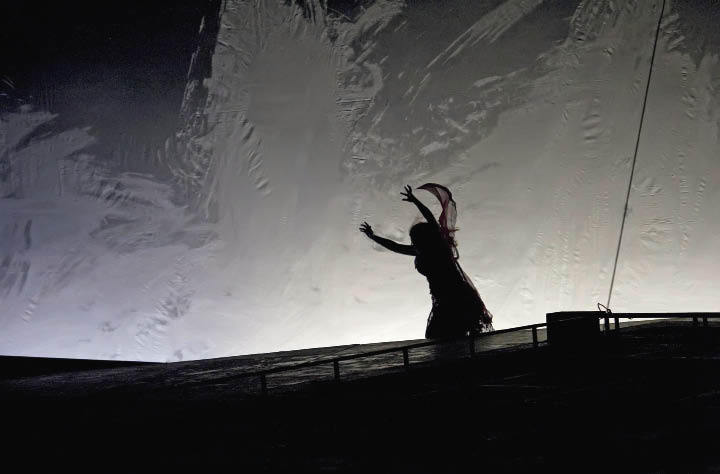Katya Kabanova
ENO, in rep until 27 March
Katya Kabanova is Janacek’s grimmest opera, perhaps the grimmest opera ever written, but it is flooded with radiant music, which is decisively stamped out in the last few moments. With Katya having drowned herself, and the happy young lovers Kudrjas and Varvara having taken their most unChekhovian leave for Moscow, what hope is there for this community, whose senior figure, the Kabanicha, sees Katya’s suicide as the vindication of her moral stance? Her son Tikhon is a pathetic wretch, Katya’s lover Boris feels he had better leave her to her fate and clears off, and his uncle Dikoy is a superstitious lout whose only pleasure seems to be confessing his sins to Kabanicha and — at least in this production — receiving welcome chastisement for them. All Janacek’s other great operas end with passionately upbeat music, even if much of the situation onstage is largely bleak, as in From the House of the Dead, or the central character has just died, as in The Cunning Little Vixen and The Makropoulos Case. Katya should leave you feeling that all the beauty in the world has been obliterated, and in that way it is Janacek’s cruellest work.
I emerged from ENO’s new production of Katya somewhat moved by the last ten minutes — Katya’s leap into the river is marvellously managed, so that she seems to ascend before disappearing, as if that dream of hers about being a bird had been realised; and the subsequent rushing of the tiny collection of townspeople on to the stage, and Kabanicha’s chilling thanks to them for their kindness, as Katya’s body lies before her, is quite dreadful. But most of what had gone before it in the preceding hour and three quarters — all possible praise to ENO for performing the work straight through without an interval — was, by the extremely high standards set by every Katya I have seen for years, above all by Opera Holland Park’s production last August, tepid. One expects Janacek to freeze or burn, or sometimes, and most characteristically of him, to produce the burning effect that extreme cold creates, and pours into his succession of masterpieces beginning with Jenufa, but tepidness is antithetical to everything he cares about or can be interested in.
The first cause of discontent is the staging, with set designs by Charles Edwards and direction by David Alden. Anyone who saw Jenufa by the same team will recognise the long sloping pale-brown wall with the door in it, and a single chair, that was the Kostelnicka’s room in the earlier opera. Just where we need claustrophobia we are more likely to encounter its opposite. The wall moves round from scene to scene, but presumably its omnipresence has connotations of a dam. What neither it nor anything else in the staging does is create any specific atmosphere — again, the last scene excepted.
Though the composer was insistent that the Volga flows through the whole score, here it is mainly notable for its absence. The lack of colour invades the characterisation, too, and since Janacek hasn’t bothered much with that himself, with the exception of his adored heroine, help is needed if she isn’t to seem a living being among cardboard cut-outs. The young, happy pair of lovers receive the kind of music you would expect, but the other characters are perfunctorily drawn, though Janacek professed a belief in a divine spark in everyone.
The male singers are all strong, with Stuart Skelton a ringing Boris, though he does little but look hangdog. Clive Bayley sounds as appropriately disgusting as he looks; while Alfie Boe as carefree Kudrjas sings as he should have sung last year as Rodolfo. The women are less strong. Susan Bickley is a singer of force and character, but she doesn’t show that as Kabanicha; she seems, understandably, to fight the role, with a colourless draw as the result. But it is Patricia Racette’s Katya that is really the problem: she is tight-voiced, underpowered, and looks dowdy, all told the least adorable Katya I’ve seen.
Mark Wigglesworth hasn’t yet managed to elicit the right kind of edgy glow from the orchestra, so that too much of this fantastic music sounds mushy, like Richard Strauss on a moderate diet. Nor is there the surge and sweep we heard from Richard Farnes with Opera North. He takes a leisurely view of the score, too, where urgency is needed almost throughout. Most of these are things that can improve, but the first night reminded us that Janacek is a lot more difficult to get right than we might have thought.






Comments